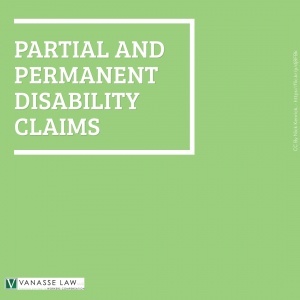Need Immediate help? Call 717-397-1010
After Hours Call / Text 717-471-2168
Need Immediate help? Call 717-397-1010
After Hours Call / Text 717-471-2168
 Lost wages are common when it comes to injury claims. Whether you have been in a car accident or have been injured at work, any time you cannot earn money while at work can be argued as lost wages. Simply put, lost wages can be quickly summarized as the money you would have earned had you not been injured. However, the time lost must be a result of the injuries sustained and those injuries must be related to the claim you are making.
Lost wages are common when it comes to injury claims. Whether you have been in a car accident or have been injured at work, any time you cannot earn money while at work can be argued as lost wages. Simply put, lost wages can be quickly summarized as the money you would have earned had you not been injured. However, the time lost must be a result of the injuries sustained and those injuries must be related to the claim you are making.
For instance, if you are injured at work but later have to miss a day due to migraines, that missed time does not count as lost wages, even though it was during the time you were recovering from the other injury. However, if you are suffering from migraines because of a head injury you sustained and you had to go to a doctor to be treated, that time would count toward lost wages. Recovery time also counts toward this, but only if it can be proven that it was due to the injury.
As an example, taking an extra day to stay home because you are not feeling up to going back does not count. However, if you have a medical note saying you are not allowed to go back to work, this is covered. When it comes to these claim, the real burden is proving your lost wages.
To prove your lost wages, you must submit evidence, just as you would with a personal injury. The following documents must be in every case:
If you were injured and had to miss work as a result of a workplace injury, contact our team today to get started on your claim.
The Employee Retirement Income Security Act (ERISA) aims to protect the assets of your plan, but many are not well-informed on the responsibilities of the fiduciary who control or have authority over their plan. The first thing to understand is what a fiduciary is. Simply put, a fiduciary is someone who acts in your interests when it comes to your retirement plan.
The second part is understanding ERISA regulations of employee benefits.

ERISA has a specific set of standards of conduct for a fiduciary that acts on behalf of a plan’s beneficiary. These include:
If you have concerns about your retirement plan funds, talk to one of our Pennsylvania Workers Compensation lawyers at Vanasse Law today. We will help you navigate the intricacies of ERISA law.
The federal Family and Medical Leave Act (FMLA) provides workers with important protections, but can leave employers vulnerable to its abuse. Administration of these protected leaves can be time-consuming and often confusing. Some proactive steps can go a long way to prevent abuse and hold employees accountable for abuse that may occur.

The FMLA does also provide employers with protections, with a few simple ways to stay on top of FMLA compliance without disrupting the workplace.
If you feel your employer is in violation of FMLA laws, contact our Pennsylvania Workers’ Compensation lawyers at Vanasse Law today so we can put our years of experience to work for you.

In the state of Pennsylvania, an employee who suffers a workplace injury is entitled to a number of different benefits from workers’ compensation. Generally speaking, these benefits are broken down into two major categories – medical bills and lost wages. The medical expenses that are covered can include out-of-pocket expenses for doctor visits, surgery, hospital expenses, diagnostic tests, prescription drugs, and other medications, prostheses, orthopedic devices, physical therapy, and medical supplies. If, in addition to requiring medical care, your injury prevents you from fulfilling your normal job responsibilities or from returning to work, it can also provide a replacement of a portion of your lost income, and there are different types of lost wage payments that can be made depending on how bad your injury is. The attorneys at Vanasse Law can help you understand the workers’ compensation system to make sure that you get the type of compensation that is appropriate for your situation.
In Pennsylvania, income replacement benefits are broken down into four major categories. These are:
• Temporary Partial Disability Benefits: If your injuries are severe enough that they prevent you from returning to your normal work, but you are able to perform some other type of job duty or work fewer hours, then you will probably receive temporary partial disability benefits. These provide you with two-thirds of the difference between what you were paid before your injury and what you are being paid for the work you are doing now. The benefits can be paid for up to 500 weeks.
• Permanent Partial Disability Benefits: If it is determined that you have recovered as much as you are going to, but the injury or illness still has so much of an impact that you cannot return to your old job responsibilities and have to continue working at a reduced capacity, you may qualify for permanent partial disability benefits. These permanently provide you with two-third of the difference between what you were paid before your injury and what you are being paid for the work you are doing now.
• Temporary Total Disability Benefits: If you are unable to return to work as a result of your injury, you may be eligible to receive two-thirds of the average weekly wages you received before your injury for the period of time between filing your claim and when you can return to work.
• Permanent Total Disability Benefits: If it is determined that you will never be able to return to work because your injuries or illness are so severe, then you may be eligible to receive permanent total disability benefits, which provide two-thirds of the average weekly wages you were earning before the injury on a permanent basis.
The payments that you receive for disability payments can be affected by other factors, including receiving Social Security Disability payments or other sources of income. For a better understanding of the benefits, you can receive and legal representation that provides you the ability to get the maximum compensation available to you, contact the Lancaster law firm of Vanasse Law.
Work injuries can be life-changing and often have a long-term impact on your ability to earn a living. When a work-related injury results in the injured worker being unable to return to work in any capacity, or results in a complete loss of earnings, the injured worker is entitled to total temporary disability benefits (TTD). Generally, these benefits will be two-thirds (2/3) of the injured workers’ average weekly gross earnings at the time of injury, subject to whatever State maximum compensation rate is in effect as of the date of the injury.
Separate from TTD benefits, there are scenarios in which the injured worker will be entitled to partial temporary disability (PTD) wage loss benefits. The typical scenario occurs after the injured worker has returned to work, typically with restrictions, following an injury and is earning less than he/she was earning at the time of the injury. Generally, the injured worker is entitled to PTD benefits at a rate of two-thirds (2/3) of whatever the difference is of the pre-injury average gross earnings and the post-return to work earnings. A common scenario often seen involves an injured worker who was working overtime prior to an injury, and then returns to work with restrictions but is unable to perform the overtime due to the work injury restrictions. While the injured workers’ hourly rate after returning to modified work may be the same as before the injury, there is still a loss of earnings due to the loss of overtime. Determining whether or not a worker is entitled to partial disability benefits and making sure that those benefits are properly calculated can be very complex and confusing. It is essential that you consult with a certified workers’ compensation attorney to make sure that you are receiving all of the benefits that you are entitled to.
Frequently, if your employer does not have modified duty work for you to return to, the employer and/or insurance company may embark upon an effort to attempt to establish that you have an earning capacity. This involves a vocational expert hired by the employer/insurance company preparing a Labor Market Survey and trying to establish that there are jobs in your labor market that fit within your medical restrictions. If the employer/insurance company successfully presents this Labor Market Survey evidence to a Workers’ Compensation Judge, this can result in a Judge concluding that you have an earning capacity and reducing your benefits to partial disability. Injured workers absolutely have a right to contest the Labor Market Survey before the Workers’ Compensation Judge. If you have been injured and are receiving wage loss benefits and the employer/insurance company wants you to submit to a Vocational Evaluation/Labor Market Survey process you should absolutely consult with a certified workers’ compensation attorney to help you navigate that process and make sure that your rights are fully protected.
Additionally, the Pennsylvania Workers’ Compensation Act provides that an employer/insurance company may obtain an Impairment Rating Evaluation (IRE) if you have received one hundred four (104) weeks of TTD benefits, and have reached maximum medical improvement. The examination is performed by a physician certified by the American Medical Association (AMA). The purpose of the examination is to assess your percentage level of impairment as a result of your work injury. Based on the results of the Impairment Rating your benefit status could be changed from TTD to partial disability status. It is important to be aware that you do have the right to challenge an Impairment Rating Evaluation. If you are receiving wage loss benefits and your employer/insurance company request that you undergo an IRE you should immediately consult with a certified workers’ compensation attorney to make sure that your rights are protected.
Finally, it is important to be aware that partial disability benefits (whether as a result of an actual return to work, Labor Market Survey or Impairment Rating Evaluation) have a five hundred (500) week limit for the duration of the claim. Once the five hundred (500) weeks of partial disability have been exhausted your benefits terminate automatically by operation of law. Furthermore, wage loss benefits can be subject to various reductions or offsets. Again, if you have been injured at work and are receiving wage loss benefits it is essential that you consult with a certified workers’ compensation attorney to make sure that your rights are protected completely.
Learn more about Wage Loss Benefits for Partial Disability HERE.